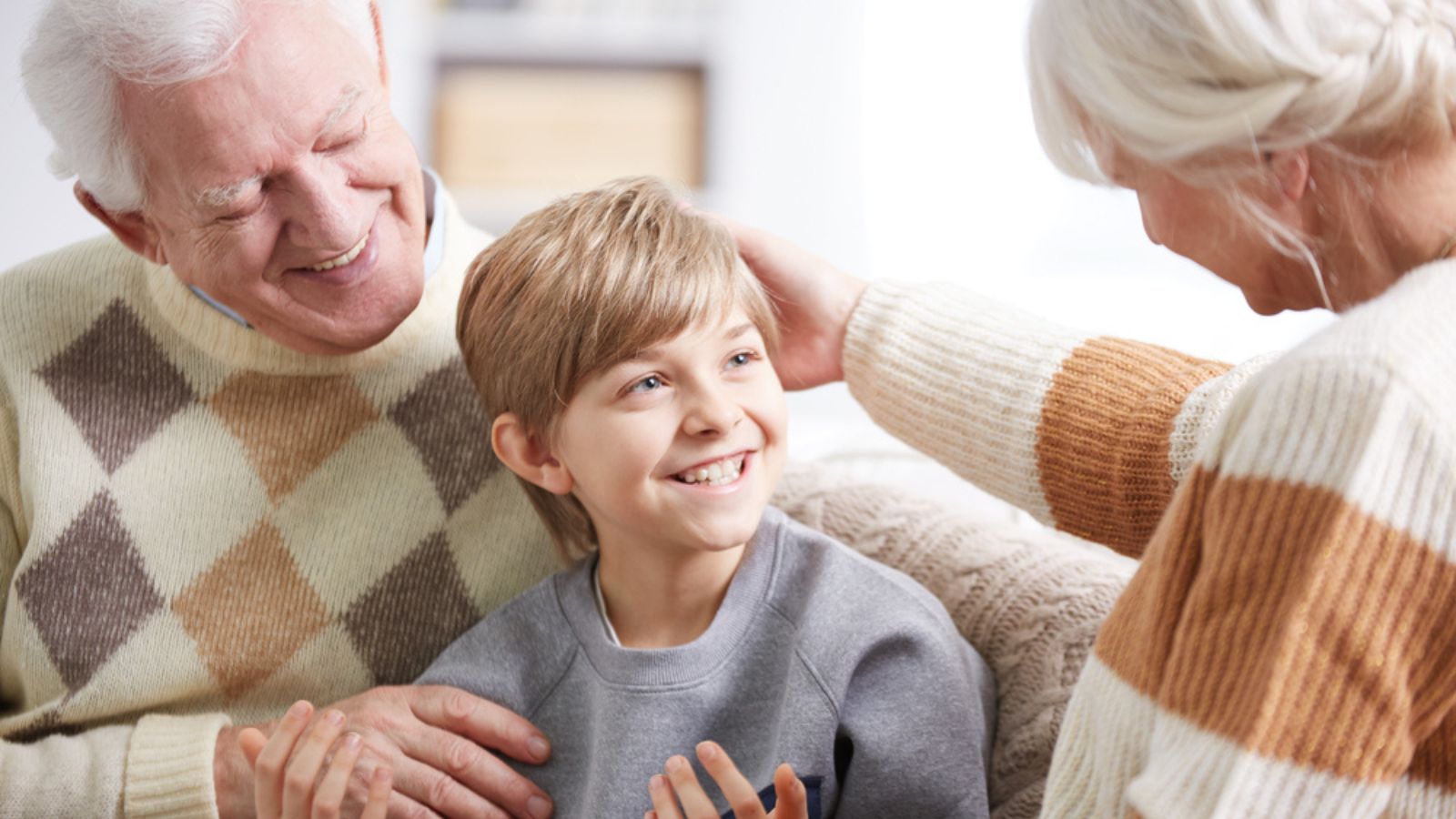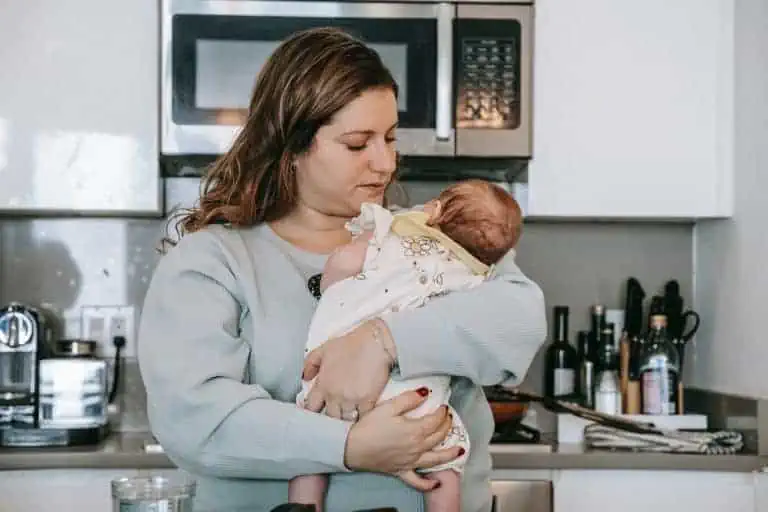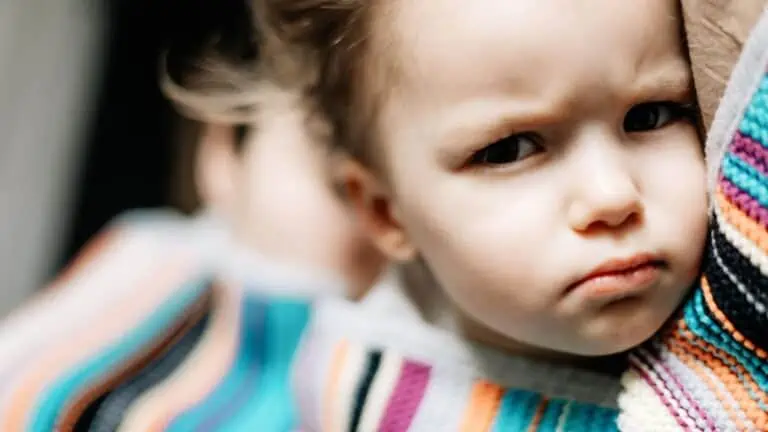16 Common Phrases Grandparents Should Stop Saying to Their Grandkids
This post may contain affiliate links. As an Amazon Associate, I earn from qualifying purchases.
Do you still remember something your grandparents said that made you uncomfortable? As much as we adore our grandparents, their words (even with good intentions) can sometimes hurt our feelings or are plain embarrassing.
If you are a grandparent, using your words mindfully around your grandkids is as crucial as any other relationship. Words hold immense power and shape our kids’ behaviors and perceptions.
Let’s look at 16 common phrases that grandparents should reconsider saying to their grandchildren.
1. Great Job
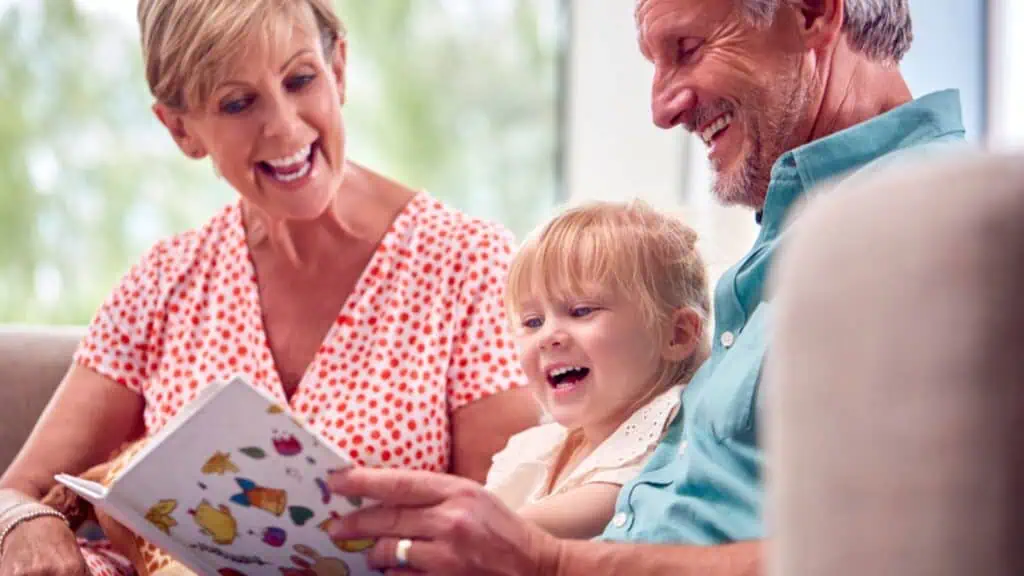
While praising a child occasionally brings motivation, saying “Good job” on every small thing can have adverse effects.
It makes the child crave constant validation and perfectionism, which can lead to anxiety and self-doubt in the long run. Instead of praising every small win, grandparents can praise the effort by saying, “I see how hard you worked on this, and I am proud of you.”
2. You Are Just Like Your Mom/Dad
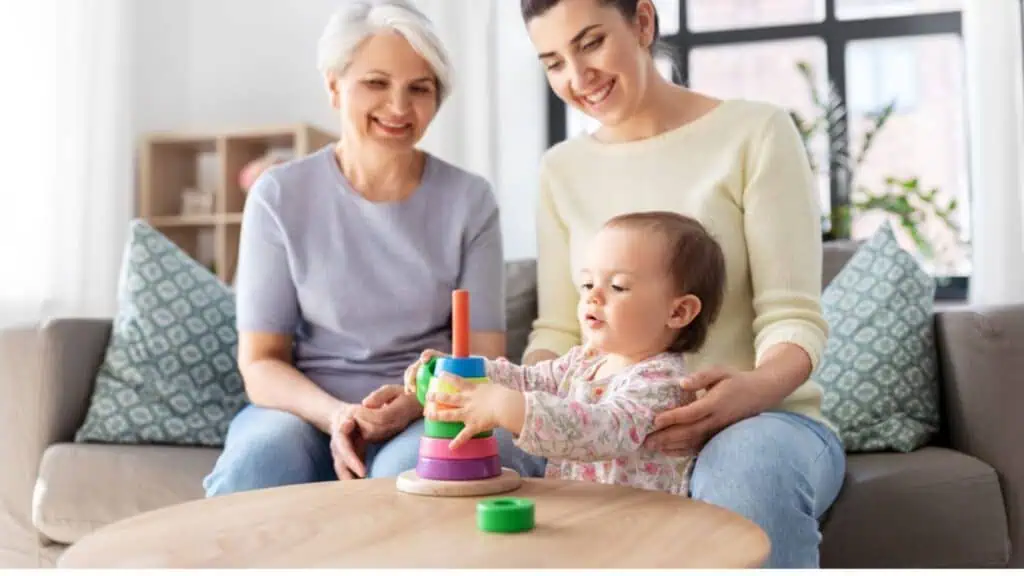
Comparing grandchildren to their parents might seem harmless, but it can pressure the child. During early years, kids are figuring out who they are, and hearing “You’re just like your mom/dad” might make them feel they have to be like their parents, ignoring their talents and dreams.
If a child thinks the parent and grandparent don’t get along, this comparison can make them feel bad, too. Instead, focus on praising your grandchildren’s unique qualities, encouraging them to be confident and independent.
3. Don’t Tell Your Parents

Telling your grandchildren to keep secrets from their parents can create trust issues within a family. It also puts the child in an uncomfortable position where he has to choose between parents and grandparents.
Interestingly, it gives the child the impression that keeping secrets from parents and being deceitful is acceptable behavior.
Grandparents should promote honesty and act as a bridge for communication within the family.
4. You Have Gained Weight
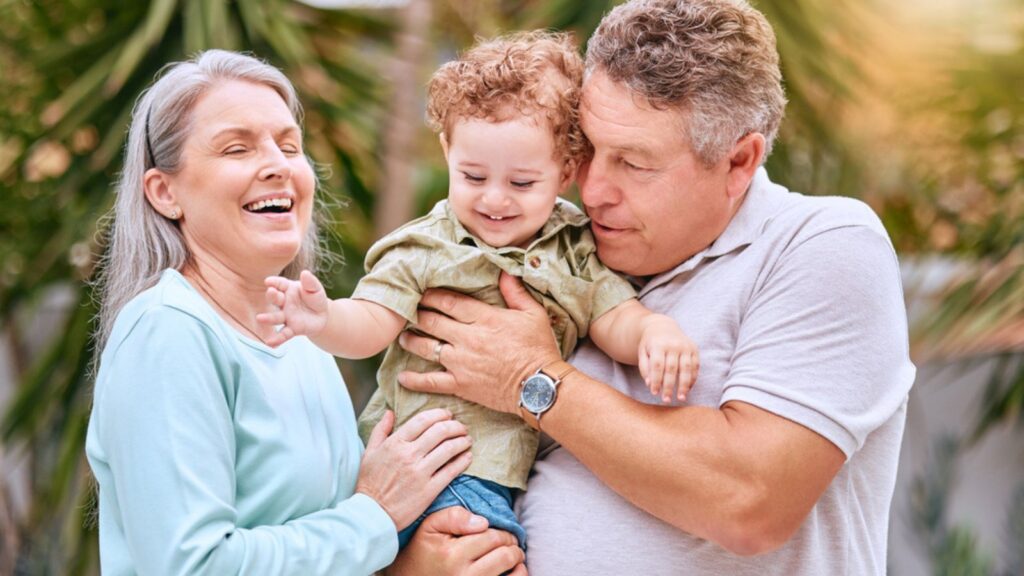
Saying to your grandchild that they have gained weight can hurt their feelings and make them feel bad about how they look (or will start to teach them that gaining weight is perceived negatively, even though it shouldn’t). Such remarks are damaging to a child’s self-esteem and result in unhealthy eating patterns.
This is especially problematic today when young people are already obsessed with unrealistic beauty standards.
Grandparents should discuss health and happiness instead of commenting on children’s appearance. It allows the child to be comfortable in his skin no matter what.
5. Your Sister/Brother is Better Than You
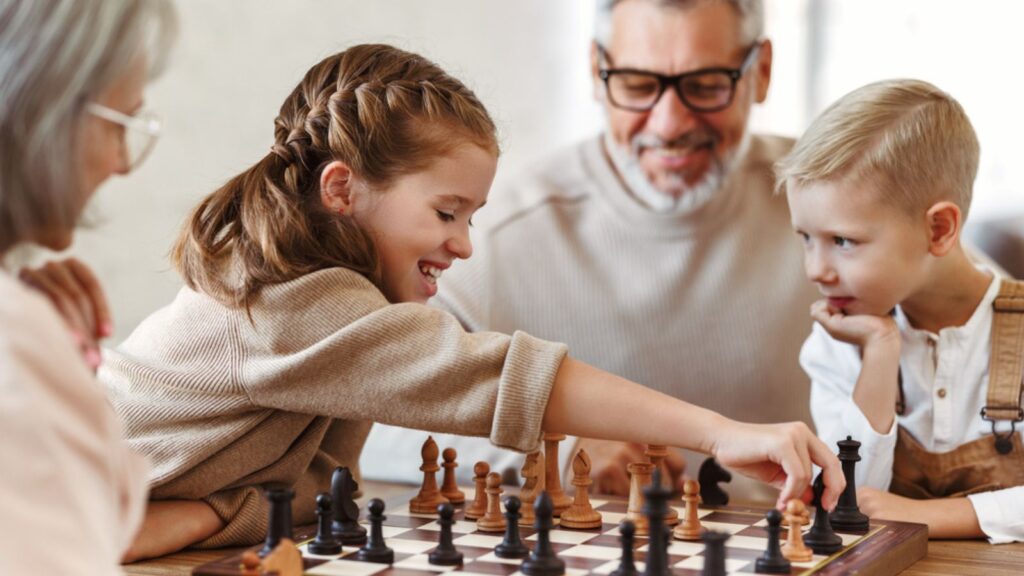
Comparing siblings is a big no. Little comments like, “Your brother could do that at your age,” makes kids question their abilities. It can lead to sibling rivalry and feelings of not being good enough. When grandparents favor one grandkid over the others (even if unintentional or subtle), it doesn’t push the others to do better.
Instead, it can make them feel resentful and doubt themselves. Every kid has their special skills, talents, and growth pace. We should cheer for their wins and efforts, no matter how they compare to their siblings or friends.
6. You’ll Grow Out of It
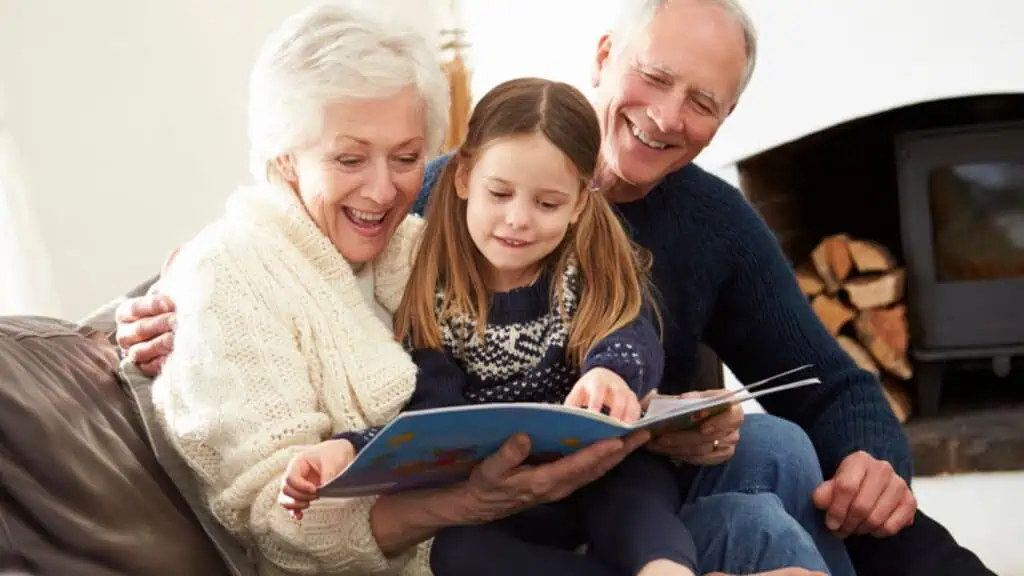
Saying this to a child means limiting their passions or challenges, assuming they’re just going through a phase. Giving them a chance to explore is essential (whether it’s a sport, friendship, etc.).
But to them, what might look like a quick interest could be a big deal in figuring out who they are. Instead of ignoring what they’re going through, as grandparents, we should celebrate their interests, worries, and passions.
7. You Are Being Too Sensitive
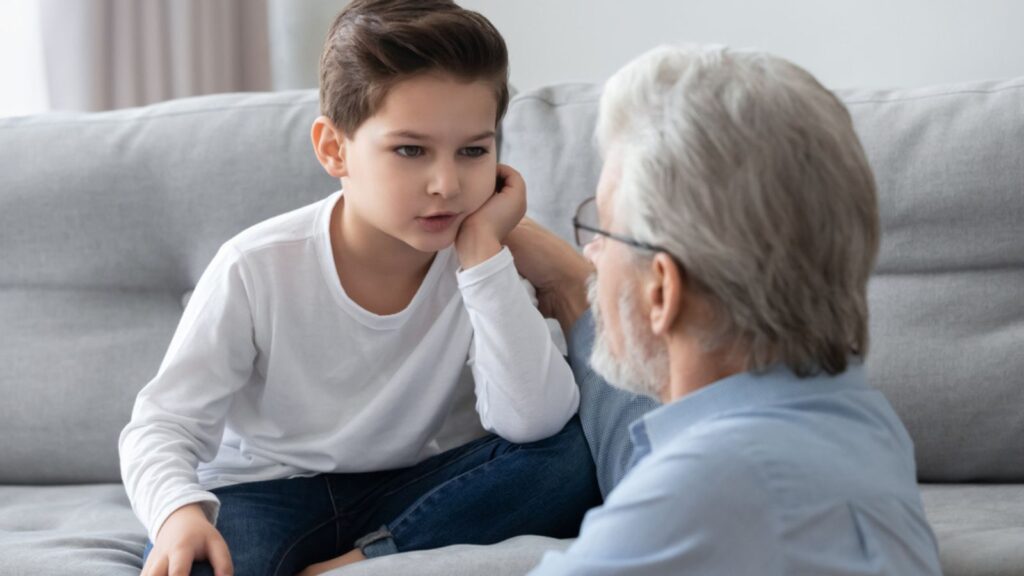
Telling your grandkids they’re too sensitive or emotional might make them feel their feelings aren’t valid. This could lead them to keep their true feelings to themselves later on, worrying they’ll be dismissed again.
Instead of ignoring their emotions, grandparents can create a space by asking, “Do you want to talk about what’s bothering you?” This way, you show that you genuinely care about their feelings and are there to support them, no matter what.
8. You Are So Spoiled

Calling a grandchild “spoiled” can do more harm than good, affecting their self-esteem and relationships.
Instead of shaming them, turn it into a joyous moment. Grandparents have the perfect opportunity to help their grandkids appreciate their blessings by practicing gratitude together.
You can try saying, “It’s great to have these opportunities. Let’s think of ways to share and give back to others.” This will help children learn the importance of gratitude and sharing.
9. Did You Get Good Grades?

While usually asked with good intentions, this question can pressure grandkids to live up to academic expectations. Instead of being concerned about grades, grandparents could switch it up and ask, “What did you enjoy learning about at school?” or “How do you feel about your classes?”
These questions open up a more cool chat about school that’s not just about marks, letting grandkids talk about what excites them, the challenges they face, and what they’re proud of, all in a supportive vibe.
10. Stop Crying, You Are Not a Baby Anymore
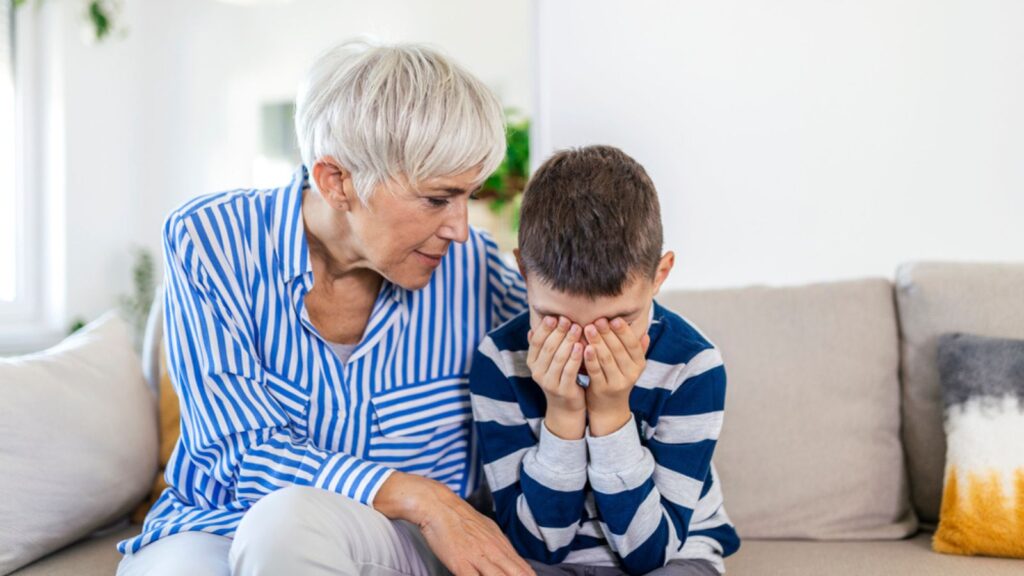
Dismissing your grandkid’s emotions by saying they are childish once again makes them feel like their feelings are invalid. Acknowledging and validating a child’s emotions is essential, even if they seem minor.
This helps children develop emotional intelligence and understand that it’s okay to express themselves and seek support from others when needed. Instead of telling them to stop crying, try asking them what’s wrong and how you can help.
11. Derogatory Nicknames
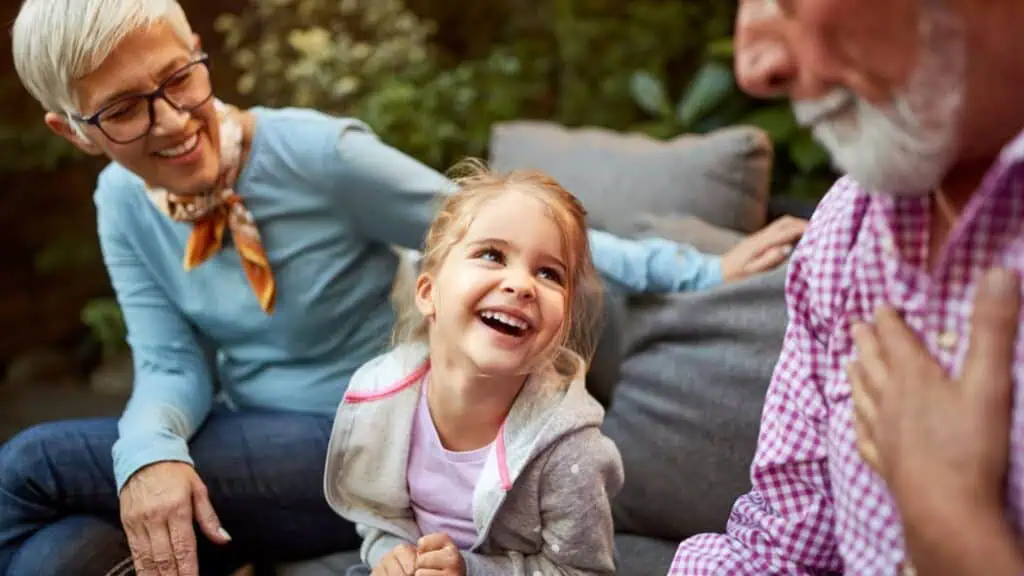
Nicknames are a fun and cute way for grandparents to show their love for their grandkids. But it’s essential to pick ones that make the little ones feel special and loved, not awkward or embarrassed.
Respect your children’s choices when choosing a nickname. This can strengthen the bond between grandparents and grandkids, creating a happier, more supportive family vibe.
Plus, it lets the grandkids have a say in their identity and what they prefer, boosting their confidence and sense of independence.
12. Because I Said So
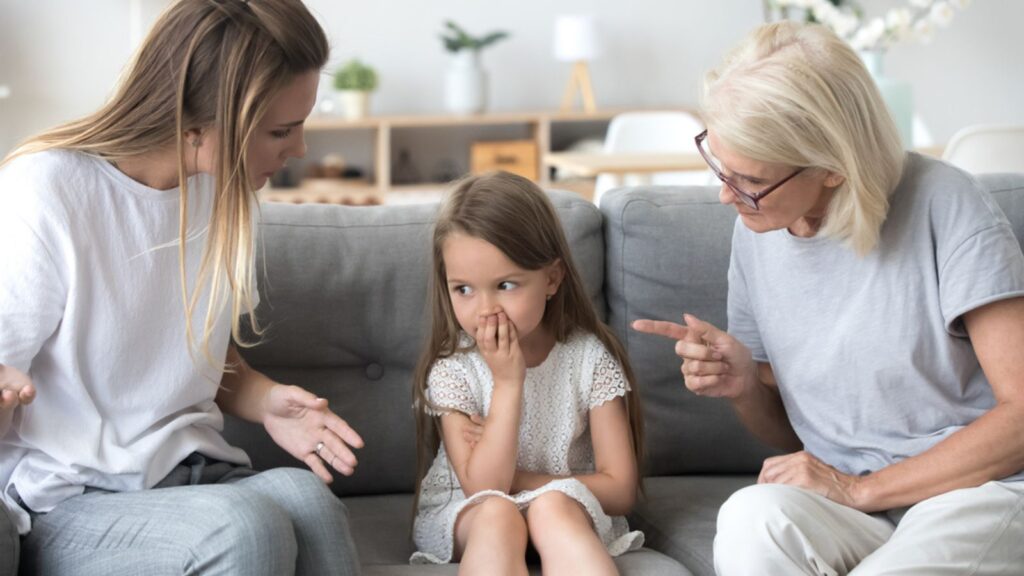
Using power to get kids to listen might work fast, but it doesn’t teach them why things are how they are. Saying “because I said so” just prevents kids from being curious and asking questions, which isn’t good for their brain growth.
Instead of ending the conversation on this note, grandparents should use it to talk about why they made specific rules. Open conversation helps kids think for themselves and teaches them to respect rules because they get it, not because they’re scared.
13. If You Were My Child…

This phrase indicates that a grandparent isn’t too happy with how their grandkid is being raised, and they might think their ways or values are better than the kid’s parents. While it is usually said out of love or concern, it can cause tension and make it look like the parents don’t have control.
Grandparents should understand and respect the parenting decisions and limits set by the parents, even if they don’t quite agree. Offering constructive support and having open communication between grandparents and parents can help everyone work together to raise happy, healthy kids.
14. When I Was Your Age

Sharing life stories is great, but if you keep comparing your grandkid’s life to yours, they might feel like you’re not getting them or that their problems don’t matter much.
Instead of saying, “Back in my day, we…” you can say, “You know, when I was about your age, I went through something similar. Here’s what I did…” This way, you can show that you understand it and give them some handy tips while being supportive.
15. You Love Grandma/Grandpa the Most

Playing favorites or suggesting that a grandkid likes one grandparent more than the other can create unnecessary drama and make everyone feel guilty. It’s unfair to the grandkids and makes them feel like they have to show their love in a way that doesn’t go with how they feel.
As grandparents, you should create a calm environment where love is given and received without any strings attached. Encouraging the little ones to appreciate their bond with each family member can make them feel more at home and secure.
16. If You Don’t Listen, You Are Not My Favorite Anymore

Saying things like that, even as a joke, can disturb a kid’s feeling of being safe and loved. It makes them think their grandparents’ love is conditional and might not be there if they don’t meet specific standards. This can lead to anxiety and even the grandchild to do things they don’t want to, just to keep that love coming.
Instead of going down that road, allowing kids to share their thoughts and feelings respectfully and listening to them with interest creates a base of trust and unconditional love.
It shows them they’re valued for who they are, not just for following the rules or behaving a certain way.
15 Modern Day Struggles Grandparents Deal With
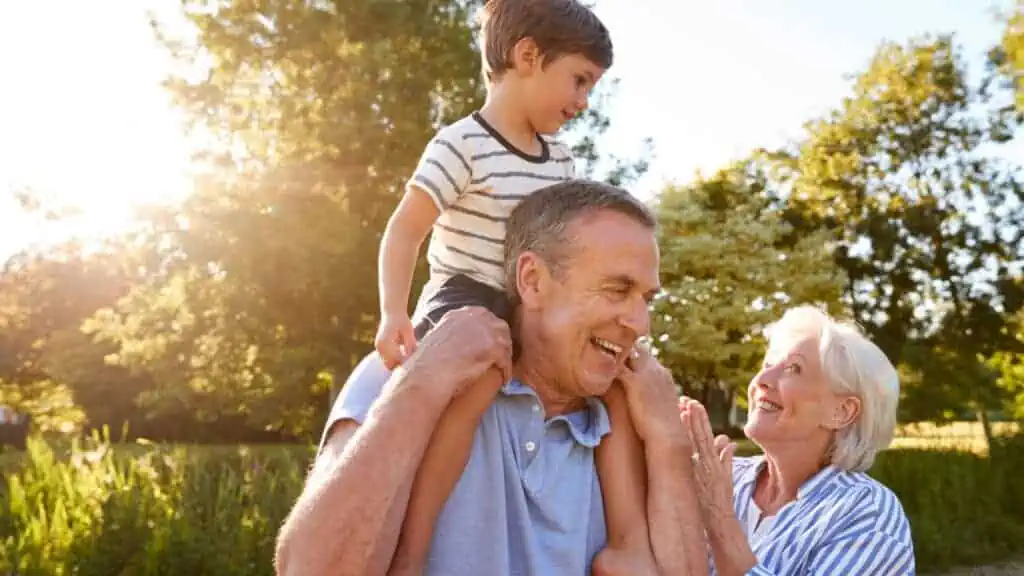
Grandparents are often the backbone of a family dynamic. They can play a crucial role in their grandchildren’s lives. They offer not just love and wisdom, but grandparents can also be caregivers, mentors, and even playmates, balancing their own lives with the needs of their grandkids.
Despite their immense love and the joy they find in these moments, being a grandparent is not easy and has its set of challenges.
15 Modern Day Struggles Grandparents Deal With
20 Strong Words Parents Should Never Say to Their Kids
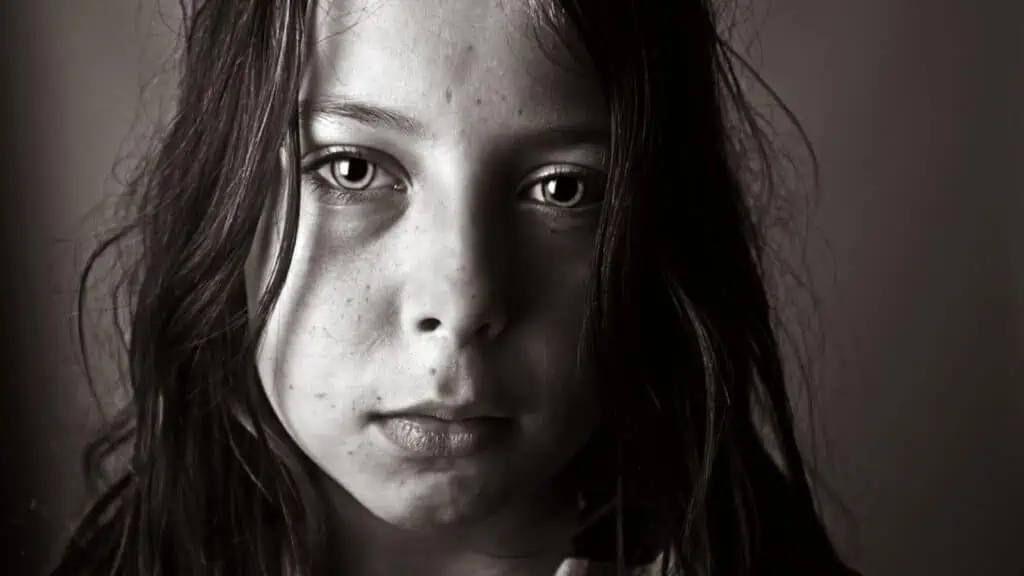
Countless adults sitting in a therapist’s office today are grappling with the lasting impact of words spoken by their parents during childhood. Regardless of how you perceive yourself, in your child’s eyes, you are nothing short of the most remarkable thing to happen to them since “skip intro.” This underscores the critical importance of being mindful of what you say to your children, as your words become the small but influential voice in their developing minds.

